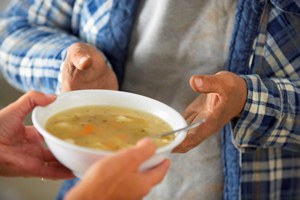Keys to Strengthening Your Immune System
 We are bombarded daily with all sorts of microbes that can cause illness. Interestingly, if we are exposed to a wide range of these microbes as children, studies have shown that we will have a lower risk of asthma and allergies as well as a stronger immune system. There are a number of factors that influence the health of our immune system, including diet, stress, exercise and aging. Following are some strategies you can use to help strengthen your immune system.
We are bombarded daily with all sorts of microbes that can cause illness. Interestingly, if we are exposed to a wide range of these microbes as children, studies have shown that we will have a lower risk of asthma and allergies as well as a stronger immune system. There are a number of factors that influence the health of our immune system, including diet, stress, exercise and aging. Following are some strategies you can use to help strengthen your immune system.
Eat plenty of fruits and vegetables – These are high in the vitamins, minerals and trace elements you need to help keep you healthy, particularly those high in vitamin C (red bell peppers, strawberries, broccoli, citrus fruits) and zinc (nuts, seeds, wheat germ).
Reduce stress – Chronic stress has been shown to inhibit the production of interleukins and cytokines, which are responsible for stimulating the action of white blood cells. Chronic stress also causes the stress hormone cortisol to be continually released into the bloodstream, which in the long term suppresses the production of pathogen-fighting T cells and antibodies.
Get out in the sun/Make sure you get enough Vitamin D – Insufficient vitamin D has been linked to greater susceptibility to infection. Approximately one out of three Americans is deficient in vitamin D. Try to get out in the sun in the summer months wearing minimal clothing and no sunscreen for 5 to 10 minutes two or three times a week between the hours of 10 am and 3 pm. This will provide you with sufficient vitamin D without increasing your risk of skin cancer. You can also take a supplement in the winter months or if you live in a place without much sun.
Get sufficient sleep – Sleep deprivation increases inflammation and inhibits the immune response. One study found that people who habitually slept less than seven hours each night were nearly three times more likely to catch a cold than people who slept eight hours or more.
Exercise – Moderate exercise has been shown to decrease stress and boost the immune system. Thirty minutes of moderate exercise each day, such as a brisk walk, raises the body’s levels of leukocytes, which are cells that help guard against infection.
Eat probiotics – Perhaps even more important than antibiotics in the fight against infection are probiotics, beneficial bacteria that live in the gut and upper respiratory tract. They boost the immune system by encouraging the production of certain T cells. You can find probiotics in yogurt, sauerkraut and kimchi, or you can take a probiotic supplement.
Avoid sugar – Even 100 grams of sugar, the equivalent of a 24-oz soda, depresses your immune system by reducing the ability of white blood cells to combat bacteria. This effect can last for a few hours after sugar ingestion, so if you are trying to stay healthy, keep away from the sweets!
